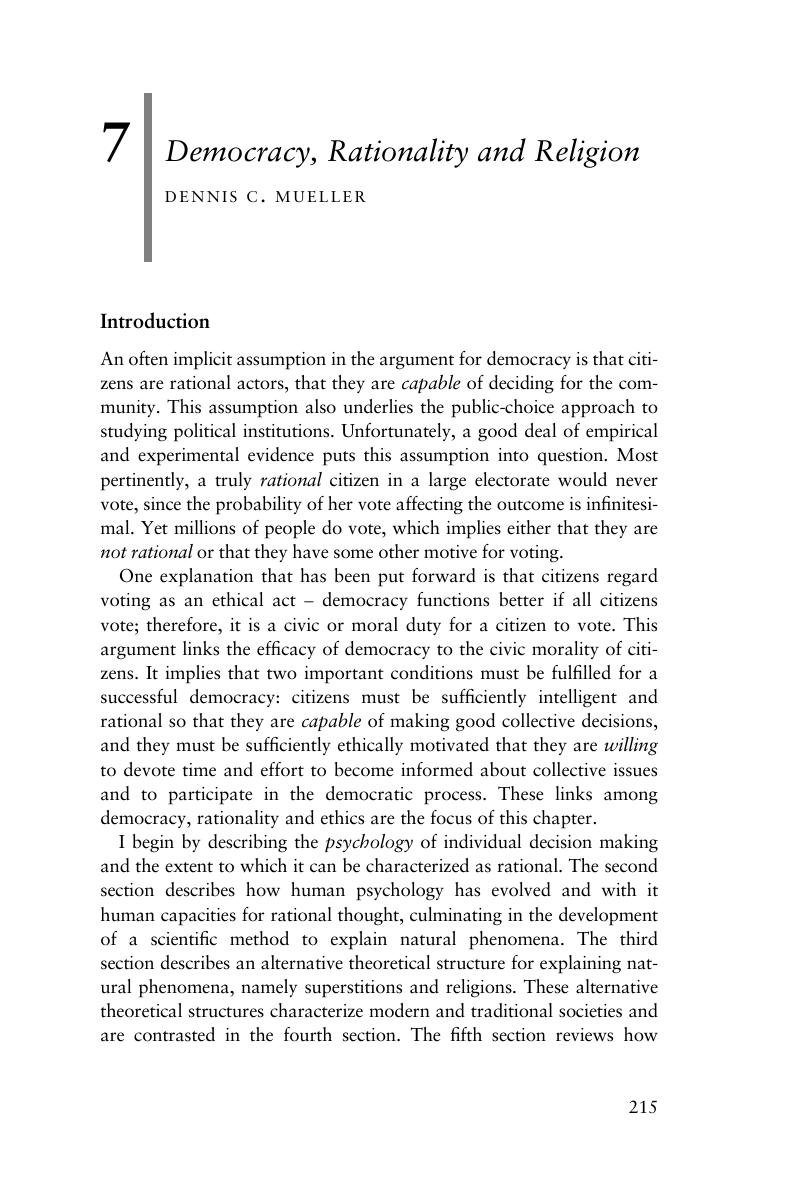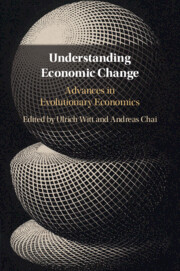Book contents
- Understanding Economic Change
- Understanding Economic Change
- Copyright page
- Contents
- Figures
- Tables
- Contributors
- Part I Introduction
- Part II Conceptual and Methodological Problems
- Part III Perspectives on Evolutionary Macroeconomics
- Part IV Advances in Explaining and Assessing Institutional Evolution
- 7 Democracy, Rationality and Religion
- 8 On the Evolution of Organisational Governance
- 9 Strategic Interaction and Externalities
- 10 Fairness in Urban Land Use
- Part V Evolutionary Perspectives on Welfare and Sustainability
- Index
- References
7 - Democracy, Rationality and Religion
from Part IV - Advances in Explaining and Assessing Institutional Evolution
Published online by Cambridge University Press: 10 November 2018
- Understanding Economic Change
- Understanding Economic Change
- Copyright page
- Contents
- Figures
- Tables
- Contributors
- Part I Introduction
- Part II Conceptual and Methodological Problems
- Part III Perspectives on Evolutionary Macroeconomics
- Part IV Advances in Explaining and Assessing Institutional Evolution
- 7 Democracy, Rationality and Religion
- 8 On the Evolution of Organisational Governance
- 9 Strategic Interaction and Externalities
- 10 Fairness in Urban Land Use
- Part V Evolutionary Perspectives on Welfare and Sustainability
- Index
- References
Summary

- Type
- Chapter
- Information
- Understanding Economic ChangeAdvances in Evolutionary Economics, pp. 215 - 257Publisher: Cambridge University PressPrint publication year: 2018



